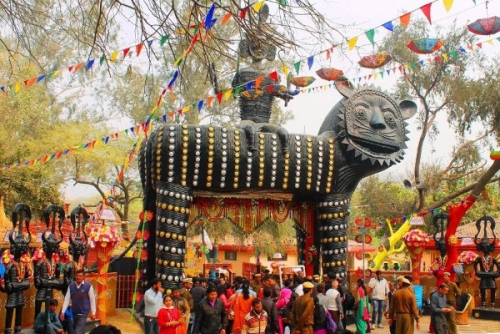Wisdom teeth removal is one of the most common dental procedures, yet it often raises questions for patients regarding its complexity and whether it qualifies as a major surgery. In many cases, people are unsure whether wisdom tooth extraction is a simple procedure or something more involved. For those considering wisdom tooth extraction in Islamabad, understanding the process, recovery, and potential complications is crucial. If you are dealing with pain or discomfort due to impacted wisdom teeth, you may be wondering if this procedure will require extensive surgery or if it's just a minor dental intervention.
What Are Wisdom Teeth and Why Are They Removed?
Wisdom teeth are the third set of molars located at the back of your mouth. These teeth typically emerge in late adolescence or early adulthood, around the age of 17 to 25. In some cases, wisdom teeth come in without causing any issues, but in most instances, they can cause a variety of problems. These problems may include crowding of the other teeth, infection, gum disease, or even damage to nearby teeth. In such cases, dental professionals often recommend removal to prevent further complications.
However, wisdom teeth removal can range from a relatively simple extraction to a more complex procedure. Whether it's a major surgery or not depends largely on the condition of the wisdom teeth, the patient's age, and the complexity of the extraction. Generally, wisdom tooth extraction is not considered a major surgery, but certain situations can make it a more involved procedure. For instance, if the teeth are impacted or if they are trapped beneath the gums or bone, the procedure may require surgical intervention.
Is Wisdom Teeth Removal a Major Surgery?
Wisdom teeth removal is not generally classified as a major surgery. However, there are factors that can make the procedure more complex. For instance, if the wisdom teeth are impacted, meaning they haven't fully emerged from the gums, the dentist or oral surgeon may need to perform a surgical extraction. In this case, the procedure might involve cutting the gums and possibly even removing some bone to access the tooth. This type of surgery is more involved than a simple extraction, which just involves pulling the tooth out once it has erupted through the gum line.
In terms of anesthesia, most wisdom teeth extractions are done under local anesthesia, which numbs the area to prevent pain during the procedure. For more complicated cases, general anesthesia or sedation may be used, which makes you sleep through the procedure. The use of anesthesia plays a significant role in determining how "major" the surgery feels to the patient, but overall, wisdom teeth removal is typically a well-tolerated procedure, even in more complex cases.
Recovery After Wisdom Teeth Removal
Following the procedure, the recovery process is one of the most important aspects to consider when determining the overall impact of the surgery. While the pain from the procedure is typically manageable with prescribed painkillers, patients can expect some swelling and discomfort for the first few days. The recovery time can vary depending on the complexity of the extraction, but most people can return to normal activities within a few days to a week. It is important to follow your dentist’s aftercare instructions carefully to avoid complications, such as dry socket or infection, which can make recovery longer.
If the wisdom teeth are impacted or if the procedure was more invasive, recovery might take a bit longer, with a higher risk for complications. However, in most cases, wisdom teeth removal is not a long-term procedure, and full recovery occurs within a few weeks.
Is It Really a Major Surgery?
In summary, wisdom teeth removal is typically not considered a major surgery, especially for patients with fully erupted teeth. However, if the teeth are impacted or if the procedure requires cutting into the gum tissue or bone, it can be more involved. The level of discomfort and recovery time depends on the complexity of the extraction and the method of anesthesia used. Regardless of the situation, the procedure is widely considered safe, and most patients experience only mild to moderate discomfort following the extraction. If you are facing the decision to undergo wisdom tooth extraction in Islamabad, it is always a good idea to consult with a qualified oral surgeon who can explain the specifics of your case.
For more information on wisdom teeth extraction and to schedule a consultation, visit wisdom tooth extraction in Islamabad at the Royal Cosmetic Surgery Clinic. Whether your wisdom teeth are problematic or just beginning to cause discomfort, an experienced dental professional can guide you through the process, ensuring the best possible outcome.
In conclusion, while wisdom teeth removal might involve some discomfort and temporary recovery, it is generally not classified as major surgery. Most patients experience minimal complications and can return to their normal routine within a short time frame. If you have any concerns about the procedure or its complexity, don’t hesitate to contact us at Royal Cosmetic Surgery PK for personalized advice and expert care.









 Premium Furnished Apartments 1/2/3/4 Bedroom Rent in Bashundhara R/A, Dhaka
Premium Furnished Apartments 1/2/3/4 Bedroom Rent in Bashundhara R/A, Dhaka


